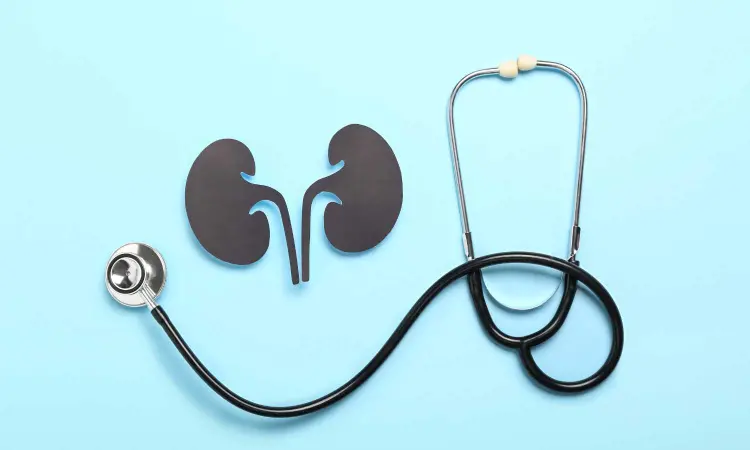- Home
- Medical news & Guidelines
- Anesthesiology
- Cardiology and CTVS
- Critical Care
- Dentistry
- Dermatology
- Diabetes and Endocrinology
- ENT
- Gastroenterology
- Medicine
- Nephrology
- Neurology
- Obstretics-Gynaecology
- Oncology
- Ophthalmology
- Orthopaedics
- Pediatrics-Neonatology
- Psychiatry
- Pulmonology
- Radiology
- Surgery
- Urology
- Laboratory Medicine
- Diet
- Nursing
- Paramedical
- Physiotherapy
- Health news
- Fact Check
- Bone Health Fact Check
- Brain Health Fact Check
- Cancer Related Fact Check
- Child Care Fact Check
- Dental and oral health fact check
- Diabetes and metabolic health fact check
- Diet and Nutrition Fact Check
- Eye and ENT Care Fact Check
- Fitness fact check
- Gut health fact check
- Heart health fact check
- Kidney health fact check
- Medical education fact check
- Men's health fact check
- Respiratory fact check
- Skin and hair care fact check
- Vaccine and Immunization fact check
- Women's health fact check
- AYUSH
- State News
- Andaman and Nicobar Islands
- Andhra Pradesh
- Arunachal Pradesh
- Assam
- Bihar
- Chandigarh
- Chattisgarh
- Dadra and Nagar Haveli
- Daman and Diu
- Delhi
- Goa
- Gujarat
- Haryana
- Himachal Pradesh
- Jammu & Kashmir
- Jharkhand
- Karnataka
- Kerala
- Ladakh
- Lakshadweep
- Madhya Pradesh
- Maharashtra
- Manipur
- Meghalaya
- Mizoram
- Nagaland
- Odisha
- Puducherry
- Punjab
- Rajasthan
- Sikkim
- Tamil Nadu
- Telangana
- Tripura
- Uttar Pradesh
- Uttrakhand
- West Bengal
- Medical Education
- Industry
T2DM, hypertension and HbA1c levels influence the risk of CKD: BMC Study

A new study published in the journal of BMC Nephrology showed that 32% of Indian patients with type 2 diabetes (T2DM) had chronic kidney disease (CKD), and those aged ≥60, those with diabetes for a longer period of time, and those with a higher HbA1c were associated with worse kidney function.
One of the most prevalent chronic illnesses, type 2 diabetes mellitus contributes significantly to morbidity and mortality worldwide. With a frequency of 20% to 30%, chronic kidney disease is the most prevalent comorbidity linked to type 2 diabetes. Long-term cardiovascular mortality, renal failure, and end-stage kidney disease (ESKD) can result from the development of CKD in the setting of type 2 diabetes.
Because metabolic diseases are more common in Asia, the estimated prevalence of chronic kidney disease is higher there (34%) than elsewhere. While a single-center cross-sectional research from New Delhi, India, reveals a prevalence of 34.4%, the START-INDIA multi-center study estimates the prevalence of CKD to be over 40%.
Over the course of three months, 3,325 patients from 28 centers throughout India participated in the multicenter, cross-sectional CITE research. A sustained deterioration in kidney function (eGFR > 60 ml/min/1.73 m² for ≥ 3 months) or an increased urine albumin-to-creatinine ratio (UACR) in at least two samples were considered indicators of CKD. While logistic regression analysis found important risk variables for chronic kidney disease, descriptive statistics summarized patient characteristics.
With a median patient age of 59.9 years and a frequency of CKD of 32% in T2DM, 60.72% of patients had had T2DM for more than 10 years. Higher HbA1c, longer duration of type 2 diabetes, older age, and greater SBP were all linked to reduced eGFR (<60 ml/min/1.73 m²). Tobacco usage and a non-vegetarian diet were associated with macroalbuminuria (UACR > 300 mg/g). CKD raised the likelihood of comorbidity.
Overall, the CITE research finds clinical and laboratory variables related with chronic kidney disease, such as age > 60 years, duration of T2DM, HbA1c, SBP, non-vegetarian diet, tobacco use, and comorbidities. It also emphasizes the prevalence of CKD (32%) in Indian patients with T2DM. To validate these correlations and assess causation, longitudinal research is required.
Source:
Kumar, A., Mazumdar, A., Bhattacharjee, A. K., Gupta, A., Dasgupta, A., Sinha, B., Saboo, B., Selvan, C., Goyal, G., Balaji, J., Seshadri, K. G., Gangopadhyay, K. K., Kumar, G. V., Chawla, M., Sikdar, M., Deka, N., Singh, N. K., Chawla, P., Jetwani, P., … Surekha, T. (2025). Risk factors associated with Indian type 2 diabetes patients with chronic kidney disease: CITE study, a cross-sectional, real-world, observational study. BMC Nephrology, 26(1), 245. https://doi.org/10.1186/s12882-025-04164-6
Neuroscience Masters graduate
Jacinthlyn Sylvia, a Neuroscience Master's graduate from Chennai has worked extensively in deciphering the neurobiology of cognition and motor control in aging. She also has spread-out exposure to Neurosurgery from her Bachelor’s. She is currently involved in active Neuro-Oncology research. She is an upcoming neuroscientist with a fiery passion for writing. Her news cover at Medical Dialogues feature recent discoveries and updates from the healthcare and biomedical research fields. She can be reached at editorial@medicaldialogues.in
Dr Kamal Kant Kohli-MBBS, DTCD- a chest specialist with more than 30 years of practice and a flair for writing clinical articles, Dr Kamal Kant Kohli joined Medical Dialogues as a Chief Editor of Medical News. Besides writing articles, as an editor, he proofreads and verifies all the medical content published on Medical Dialogues including those coming from journals, studies,medical conferences,guidelines etc. Email: drkohli@medicaldialogues.in. Contact no. 011-43720751


